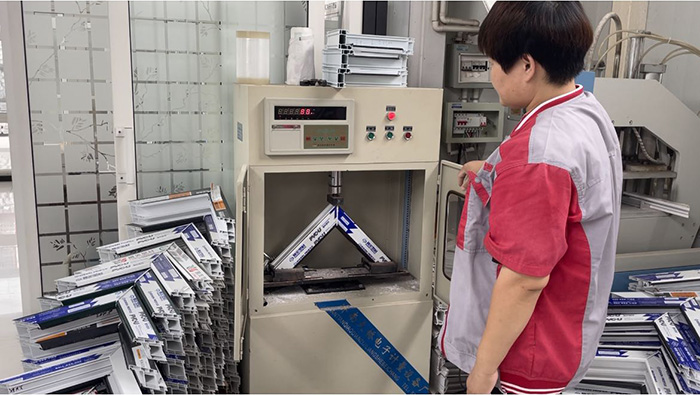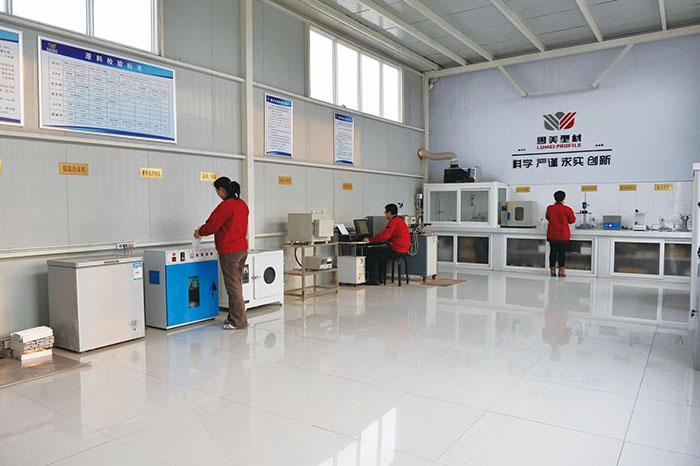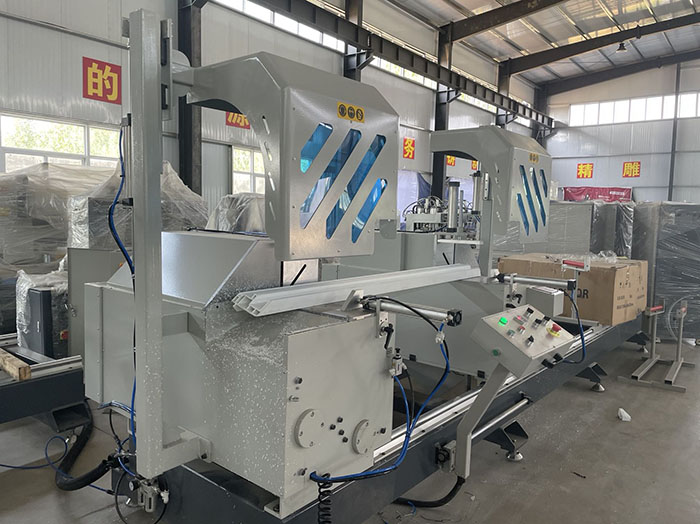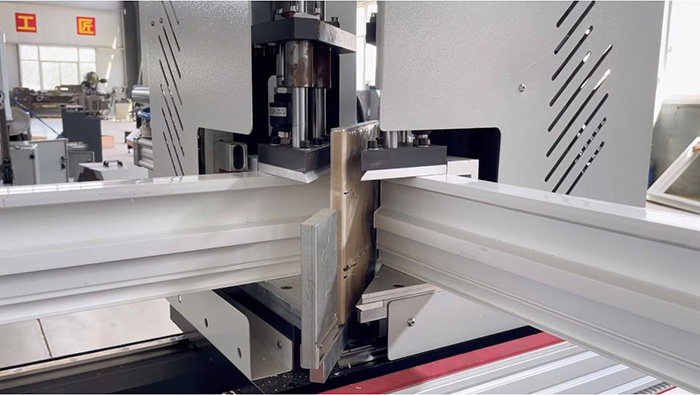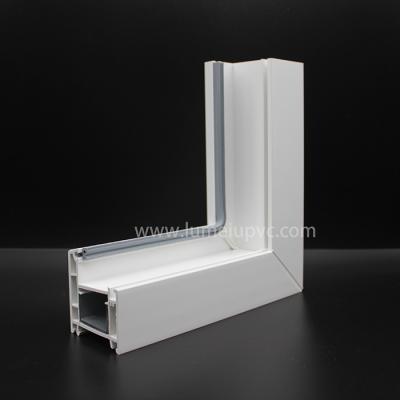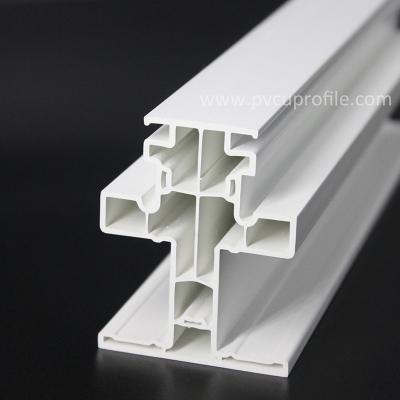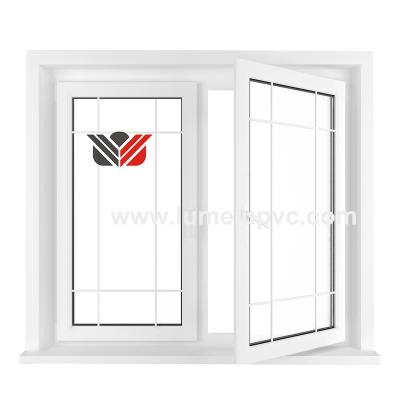PVC profile welding fillet strength
Welding fillet strength is the ability of the welding fillet to withstand external force after welding of PVC profiles, and is related to both the PVC profile itself and the welding process. If high-quality profiles are not welded well, the welding fillet strength will also be unqualified.
Weld fillet strength
(1) Welding preparation
Before blanking, the PVC profiles should be placed at the same temperature as the processing environment for more than 16 hours. This can prevent the low-temperature PVC profiles from generating stress under welding and heating conditions, causing the PVC profiles to crack.
(2) Cutting requirements
It is necessary to ensure that the cutting angle is 90° and its symmetry. After cutting, the cross section should be clean.
(3) Welding process
The welding temperature setting should be reasonable, generally 240℃-270℃. The selection of heating time must be coordinated with the heating temperature, and the selection of holding time is also very important.
In order to ensure the strength of the welding fillet, the cooling time cannot be shortened to improve work efficiency. For the same 80 fans, when the welding pressure, welding volume, and welding temperature remain unchanged, the heating time in winter changes from 20s to 15s, the holding time changes from 30s to 15s, and the welding fillet strength drops by nearly 400N (Table 3). The reason is that the short holding time causes the weld fillet to not be completely cooled and solidified, and the rapid cooling of the weld seam causes the strength of the weld fillet to decrease.
Table 3 Effects of different welding processes on weld fillet strength.
(4) Others
During the welding process, if there is any dirt on the welding cloth, it must be removed in time, and any damaged or burned areas of the welding cloth must be replaced promptly. The mechanical cleaning groove should not be too deep to prevent the strength of the welding fillet from being reduced.
Related Products
Submitted successfully
We will contact you as soon as possible

